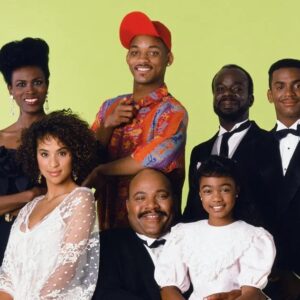This Other Eden: Paul Harding on Imagining Our Integrated Past
In Conversation with Whitney Terrell and V.V. Ganeshananthan on Fiction/Non/Fiction
Pulitzer Prize-winning novelist Paul Harding joins co-hosts V.V. Ganeshananthan and Whitney Terrell to discuss the history of an integrated community in Maine and how it inspired his new novel, This Other Eden. Harding talks about where he drew the line in his research; his ekphrastic habits; the ever-present human tendency to create “Others”; and what it means to say “never again” in the face of injustice that repeats itself. He also reads from the novel.
Check out video excerpts from our interviews at LitHub’s Virtual Book Channel, Fiction/Non/Fiction’s YouTube Channel, and our website. This podcast is produced by Anne Kniggendorf.
*
From the episode:
Whitney Terrell: Your new novel is called The Other Eden, and Sugi and I have just been arguing about the possibility of Edens or paradises, an earthly type anyway. She says, “no,” I say, “maybe.” Could you talk about and describe the other Eden in your book? Where is it? When did you first begin learning about it or imagining it?
Paul Harding: Sure. Yeah, it was one of those strange kind of happy accidents, as it were. I was casting around for another novel. I was just trying to invoke something. And I actually started writing about a minor character from my second book, Enon, an 80- or 90-year-old woman named Mrs. Hale, who had the big estate in the town Enon, and I just thought, “I want to go back, I want to write about her when she is like 10 years old.” I knew it wouldn’t be the story, but I just had to have something to go on.
So what I did was I just had this weird scene of her and her mother and her aunts having tea or a picnic in the meadow on the family’s property. As I do with all my novels, everything I’m reading, all the paintings I see, all the music I’m listening to, everything, somehow or another gets thrown into the manuscript, in the earliest stages. And so, I’m a sucker for still life and landscape paintings, and I came across a 19th-century American painter named Charles Ethan Porter. He made still lifes and beautiful landscapes. I came upon a wonderful painting of his of a meadow that had just been mowed. So they’ve just done that. I just literally drew the background of the scene with Mrs. Hale as a child, and some guy out there painting and everybody sort of wondering who he is.
Then, at the time, I was also reading a history of organized labor in the United States after the Civil War. And one of the things that’s fascinating about unions is that they are one of the first institutions to advocate for civil rights for women’s suffrage. And it just occurred to me that there must have been all Black towns there, or racially integrated settlements or communities throughout the country after the Civil War. So I just Googled a couple of keywords, and I started finding out, lo and behold, there are a number of these communities throughout the country.
I eventually came upon the story of a place called Malaga Island, off the southern coast of Maine, which from about 1792 until 1912, was the site of a racially integrated community. It was started by a Black man who had been formerly enslaved and his wife, who was a woman from Galway, Ireland. I was intrigued. I discovered that the people were evicted by the state of Maine in 1912. And in reading about it, I discovered that a number of those people were committed to a place called the Maine School for the Feeble Minded. In an earlier book, Tinker was a character who was going to be committed to a place similar to that.
So as a novelist, you have to say “give me a sign here.” The thing that sealed the deal for me was reading about eugenics and about all this sort of stuff, but it came up in a couple of articles when I read about the island. I learned that almost to the month that people were being evicted from the island, the first International Congress for Eugenics was taking place in London, and I just felt like that’s the sign.
The dowsing rods started to twitch. I realized when I went back to my little germ of the novel—it was just one of those funny moments—I just looked at it, and somebody had mentioned, “Who’s that guy out in the field painting?” And I realized that person somehow or another, was from Malaga Island. And then the mystery was, I’ve got to figure out how he came to be in Eden, Massachusetts painting.
V.V. Ganeshananthan: That’s an amazing story. In the novel, this is Benjamin Honey and his wife Patience arriving in 1793. Those are basically the first lines of the novel. I wonder if we could just go over the inhabitants of the fictional Apple Island in the novel. The “now” of the story is in 1911, so at that point, who’s still there from the Honey family? What other families lived there, and who are Esther and Ethan Honey?
PH: So Esther is, she’s certainly one of the main, if not the main, characters in the book. It sort of moves protagonists around a little bit, but she’s probably a great grandchild of Benjamin and Patience, the original couple. And she’s kind of the matriarch, she has a son named Eha, and he has three children. He has two daughters and a son named Ethan. And one of the things that was striking about the articles that I read about Malaga Island were the photographs of the island and of the folks who lived there.
One of the most striking photographs was of a school on the island. It was a picture of all the kids that are in the school and the children ranged in skin tone from, you know, from the people who presented absolutely white to people who were absolutely Black, just much darker skin. I thought that was fascinating.
I had been thinking of James Weldon Johnson’s Autobiography of an Ex-Colored Man and kind of experimenting with the parameters, and I just thought, you know, if Ethan is this painter, maybe he presents as white. And so there’s that family and then there are a couple of other families, sort of a few stray people from a formerly more robust community.
There are a couple of sisters who live together in the cabin of an old schooner, and there’s a family of people who are quite inbred, and they’re sort of otherworldly. The children all only come out at night, and they’re the people that in the book ended up being sent to this school for the feeble minded. There’s a guy named Zachary Hand to God Proverbs, who’s a Civil War veteran. He fought in one of the Black regiments from Connecticut and he lives in a tree and he makes carvings of themes from the Old Testament.
There’s like 47 people on the island in reality, but I just scaled it down to concentrate on a smaller cast of characters. And then there’s this white school teacher/missionary named Matthew Diamond, who has come to the island with the best of intentions, and he’s actually a very good teacher, and he teaches the students and one of them is Ethan. Ethan Honey is very good at painting, but there’s a girl who’s really good at Latin and another girl was great at algebra. But since Ethan presents as white, one of the things that Matthew Diamond decides to try to do is “save” Ethan by having a wealthy friend of his sponsor Ethan. And that is the character who owns the estate.
Selected Readings:
Paul Harding
• This Other Eden • Enon • Tinkers
Others:
• Charles Ethan Porter • Malaga Island – Bowdoin University • Maine evicts residents of Malaga Island – Maine Coast Heritage Trust • Maine School for the Feeble Minded – Pineland Farms • First International Congress for Eugenics in London • The Autobiography of an Ex-Colored Man, by James Weldon Johnson • Karl Barth • Confessing Church • William Shakespeare • Macbeth • The Tempest • Old Testament • Darwin and the theory of Eugenics • “Understanding and Ameliorating Medical Mistrust Among Black Americans” – The Commonwealth Fund • Sturgis Motorcycle Rally COVID-19 Superspreader Event – National Health Institute • Artificial Intelligence • Race Bias in AI and other science/tech • The Cornerstone Speech • Walt Whitman • Maine apologizes for Malaga Island – Press Herald • Moby Dick, Herman Melville • Henry James • Review: Racism tears a Maine fishing community apart in ‘This Other Eden’ – NPR • Fiction/Non/Fiction Season 1 Episode 9: Can I Get A Witness: God and Faith in American Fiction • Fiction/Non/Fiction Season 6 Episode 17: Chatbot vs. Writer: Vauhini Vara on the Perils and Possibilities of Artificial Intelligence




















